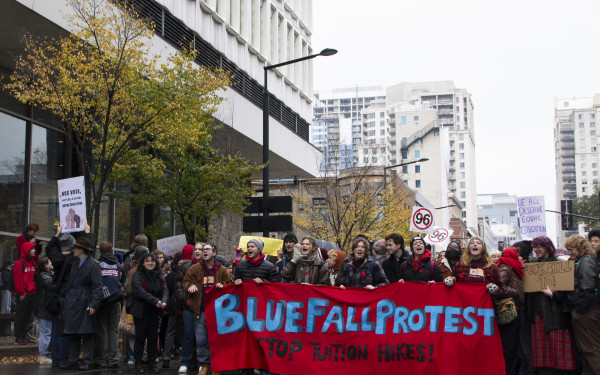Concordia to sue Quebec over tuition hikes
The university has seen a 27 per cent drop in enrollment
On Feb. 23, Concordia President Graham Carr announced that the university is set to take legal action against the province after months of discussions with the government.
According to Carr’s statement, the decision to pursue legal action comes after months of unsuccessful talks with the government and Coalition Avenir Québec’s (CAQ) rejection of Concordia’s French language program proposal.
The CAQ has reduced the increase for out-of-province students from $17,000 to $12,000. However, despite the change, Carr wrote that the provincial government “never worked with us in any substantive way to hear, let alone address, our wide-ranging concerns.”
Concordia is already feeling the effects of the hikes, with the university seeing a 27 per cent decrease in out-of-province student applications. In addition, the university is already in financial trouble, with a current deficit of $35 million, on top of the $362 million of total debt.
Due to these challenges, Concordia is ready to take legal action, stating that they “have no choice but to pursue a just outcome.”
Concordia’s main reasons for the action are its financial troubles, the belief that “diversity is a critical driver of excellence,” the need for accessible education for all, and the importance of “equality among francophone and anglophone linguistic groups and the protection of Quebec's minority English-language community.”
Concordia isn’t the only English university taking legal action. McGill has also pursued a similar lawsuit, although completely separate from Concordia’s.
Apart from the Concordia administration’s efforts to put an end to the tuition hikes, student groups around campus have continued their mobilization efforts. Twelve student associations went on strike from Jan. 31 to Feb. 2, and many are set to strike again from March 11 to March 15.







